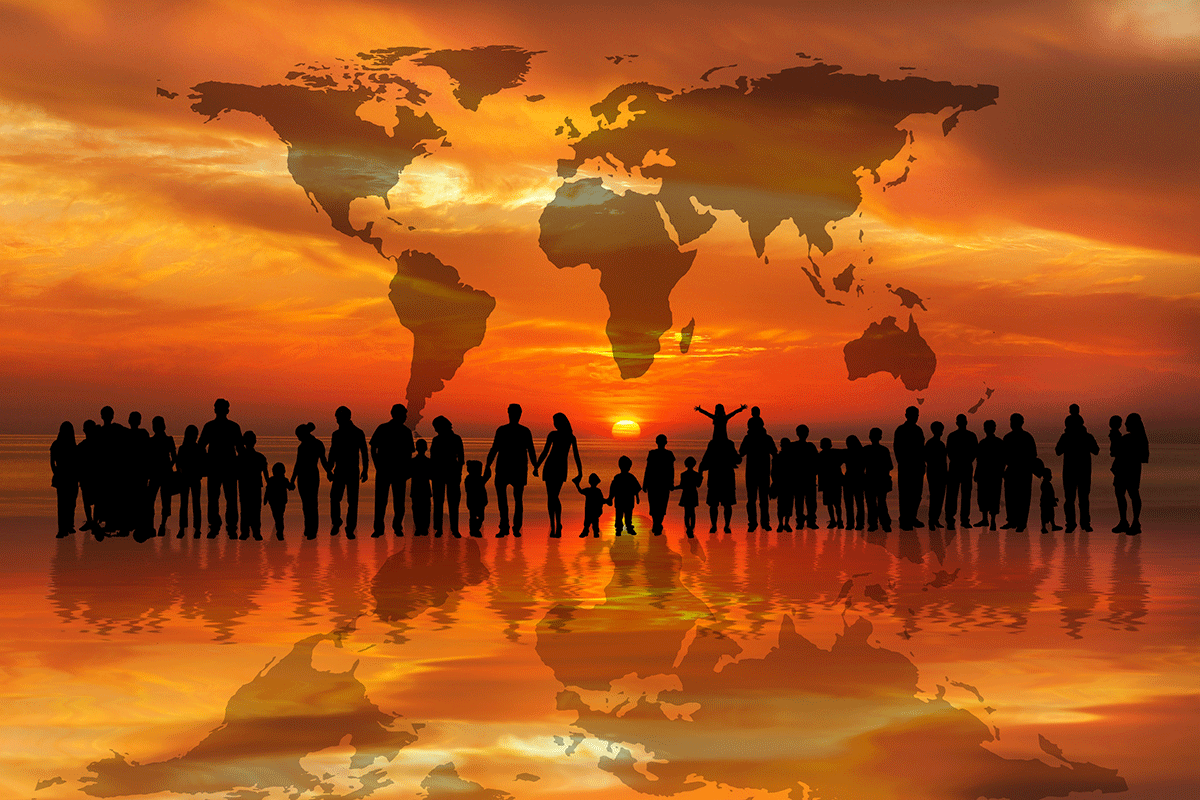How can everyone in the world live a life of dignity and meet their basic needs without collapsing the planet? In a study, an international team of scientists investigated the extent to which social goals, such as the eradication of poverty, can be reconciled with climate and environmental protection. The research found that global distributive justice, fundamental social change, and improvements in the global supply of water, food, infrastructure, and energy are key to ensuring the stability of our planet. One of the authors of the study, published in the journal Nature Sustainability, is Ilona M. Otto, a resource economist at the Wegener Center for Climate and Global Change at the University of Graz.
"While the 20th century was characterised by the phenomenon of great acceleration, the 21st century is becoming the age of great inequality. Reducing inequalities – both within countries and between states – is, however, a key prerequisite for tackling the climate crisis. We need a new global social pact to renegotiate the well-being of everyone on planet Earth," Ilona M. Otto demands.
In the study, the researchers calculated how high the additional pressure on the Earth system would have been in 2018 if all people worldwide had equitable access to food, water, energy and infrastructure. Their analyses found that greenhouse gas emissions would have increased by more than a quarter. Water and land use and nutrient pollution in water bodies would have increased by two to five percent. But the research also showed that these pressures, resulting from the poorest third of humanity's access to adequate resources, correspond exactly to the negative effects caused by the richest one to four percent of the world's population.
"The wealthy, who appropriate the majority of the Earth's resources and ecosystems, need to make a profound change to achieve social and environmental goals," Ilona M. Otto summarises. In the Climate Change Graz profile area at the University of Graz, the scientist is researching which measures can be used to drive this transformation of society forward most quickly and effectively.
The authors of the recently published study are members of the Earth Commission, an international team of scientists tasked with finding a safe and just way out of the climate crisis for humanity and our planet. Behind the Earth Commission is the international research program Future Earth.
Publication
Impacts of Meeting Minimum Access on Critical Earth Systems amidst the Great Inequality.
Crelis F. Rammelt, Joyeeta Gupta, Diana Liverman, Joeri Scholtens, Daniel Ciobanu, Jesse F. Abrams, Xuemei Bai, Lauren Gifford, Chris Gordon, Margot Hurlbert, Cristina Y. A. Inoue, Lisa Jacobson, Steven J. Lade, Timothy M. Lenton, David A. McKay, Nebojsa Nakicenovic, Chukwumerije Okereke, Ilona M. Otto, Laura Pereira, Klaudia Prodani, Johan Rockström, Ben Stewart-Koster, Peter H. Verburg, Caroline Zimm.
Nature Sustainability, doi: 10.31235/osf.io/tj2d3
